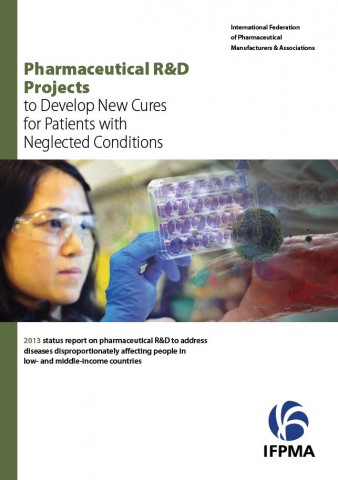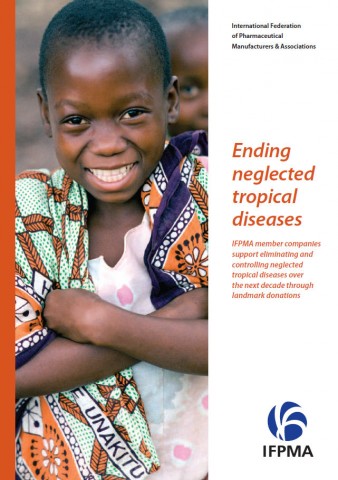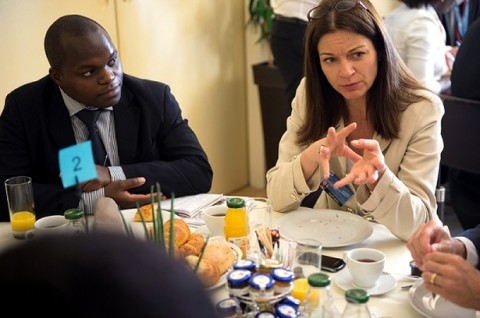To: Chancellor Angela Merkel, Federal Republic of Germany, President of the 2015 G7
Prime Minister Shinzō Abe, Japan
Prime Minister David Cameron, United Kingdom
Prime Minister Stephen Harper, Canada
President François Hollande, Republic of France
President Barack Obama, United States of America
Prime Minister Matteo Renzi, Republic of Italy
Cc: G7 Foreign Ministers and G7 Sherpas
Your Excellencies:
Ahead of the 2015 G7 Summit, we would like to applaud G7 leaders for putting global health, particularly neglected and poverty-related diseases, at the forefront of the G7’s development agenda this year.
Together, we represent a group of experts, advocates, researchers and implementing partners from public and private sector organizations that share a vision of a world free of neglected tropical diseases (NTDs).1 Our work is underpinned by the landmark 2012 London Declaration on NTDs, which captures our commitment to accelerate progress towards the World Health Organization’s (WHO) 2020 control and elimination targets. We are writing to urge you to sustain current funding levels for NTD control and elimination efforts, and implement a collective plan of action to fill the remaining gaps to ensure we reach all people at risk from NTDs.
These bacterial, viral and parasitic infections, which affect the health and economic futures of nearly 1.9 billion people across Latin America and the Caribbean, Africa and Asia, thrive in communities that lack access to health services, adequate sanitation and clean water. These infections can cause blindness, crippling physical disfigurements and increased susceptibility to HIV, exposing people to social stigma and discrimination. Without treatment, children face stunted growth and cognitive delays, posing a serious threat to their education. Moreover, there are approximately 44 million pregnant women infected with hookworms who are more likely to suffer from anemia and deliver low birthweight newborns – putting both mothers and babies at risk of mortality.
These detrimental health consequences have a spillover effect on the economic progress of families and communities, perpetuating the cycle of poverty. In short, these diseases are inextricably linked to maternal, newborn and child health; poverty; and inequality, requiring a comprehensive, holistic solution.
We enthusiastically welcome the G7’s leadership on NTDs this year, which builds on the G7’s longstanding commitments to tackle this problem, notably the historic Hashimoto Initiative, the first international parasitic disease control initiative, established during the 1998 Birmingham Summit. This paved the way for the G7’s ongoing support for research and diagnostics, in addition to treatment and prevention efforts.
Major pharmaceutical companies have established a superb track record of leadership in the effort to control and eliminate NTDs, donating 2.5 billion treatments in 2012 and 2013 alone. Partners are working tirelessly to make sure that these treatments reach the people who need them, alongside over 70 endemic countries that have demonstrated ownership of this issue by developing dedicated, integrated plans to fight NTDs.
These are all steps in the right direction, however a $220 million global annual funding gap for treatment continues to stand in the way of reaching the WHO 2020 targets. We urge the G7 to scale up investments now to ensure that programs are able to reach all affected populations, while also sustaining progress made thus far. Looking forward, the G7 and partners should ensure universal coverage against these diseases, an effort that will lead to measurable progress towards the elimination of extreme poverty; improved maternal and child health outcomes; and enhanced economic growth. Equally important, prioritizing NTDs will set the stage for success in achieving the proposed 2030 sustainable development goals.
To meet this need, the G7 should sustain current funding levels for neglected tropical disease control and elimination efforts, and implement a collective plan of action to fill the remaining gaps:
- Scale up access to existing treatments through mass drug administration and multisectoral approaches: Currently, just over 40 percent of people at risk of NTDs worldwide are being reached by treatment programs. Therefore, additional investment is essential to ensure coverage of those affected. G7 leaders can advance progress towards their 2008 Hokkaido Toyako commitment by reaching 75% of the people affected by NTDs through cost-effective, integrated approaches like mass drug administration – a bundled packet of NTD treatments that can be delivered through community-based platforms, including schools. In addition, the G7 should invest in multisectoral approaches that integrate NTD control and elimination activities alongside efforts to improve maternal and child health, education, water, sanitation and hygiene, nutrition, reaching more people in need with a greater impact.
- Invest in new, innovative technologies and approaches: While we must continue to utilize these cost-effective, high-impact treatments, some NTDs require increased investment in new innovative technologies including drugs, diagnostics, vaccines and pesticides. One possible avenue for research and development support is through product development partnerships that can facilitate exchange of expertise and scientific knowledge to develop products for diseases that disproportionally affect the most vulnerable populations.
Yours respectfully.
March 4, 2015















